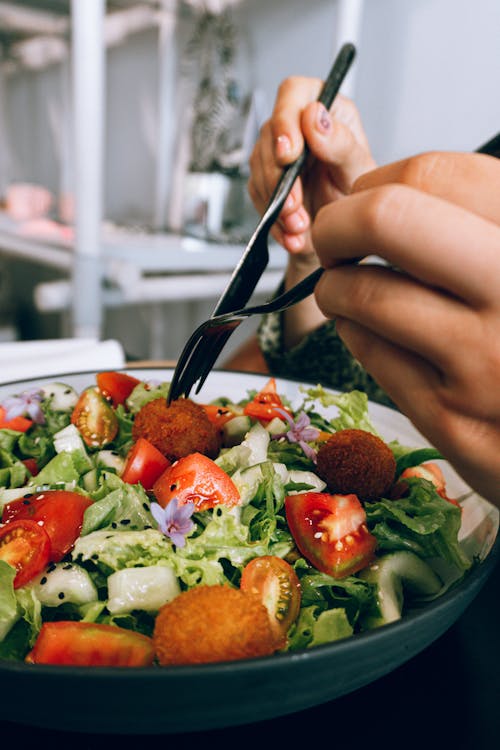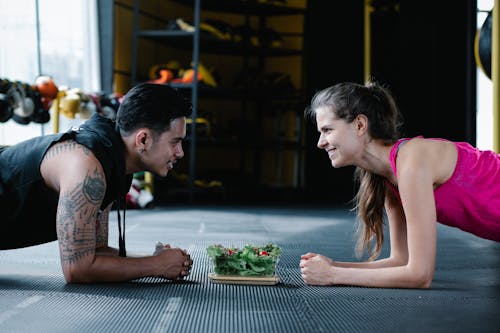
Maintaining a well-rounded fitness regimen goes hand-in-hand with adopting a nutritious diet. For individuals who dedicate time to working out in the gym, what they eat plays a crucial role in achieving their fitness goals, enhancing performance, and promoting recovery. Understanding the importance of nutrient-dense foods and strategic eating can make all the difference in your fitness journey. This article explores essential dietary guidelines and tips for gym-goers to fuel their bodies effectively.
The Importance of Nutrition for Gym Enthusiasts
Nutrition is a cornerstone of fitness. The right diet not only provides the energy needed to power through workouts but also aids in muscle recovery and growth. Here are the key reasons why proper nutrition is vital for those who frequent the gym:
- Energy Supply: Carbohydrates and fats are the primary sources of energy. Consuming the right amounts ensures that your body has the fuel it needs for both aerobic and anaerobic exercises.
- Muscle Repair and Growth: Proteins are essential for repairing and building muscle tissue. Post-workout protein intake can significantly enhance muscle recovery.
- Overall Health: A balanced diet rich in vitamins, minerals, and antioxidants supports overall health and helps prevent injuries and illnesses that could hinder workout progress.
- Performance Enhancement: Proper hydration and nutrition can improve workout performance, enabling you to train harder and more effectively.
Key Nutrients for Gym-Goers
- Carbohydrates:
- Carbs are the body’s preferred energy source, especially during high-intensity workouts.
- Sources: Whole grains (brown rice, oats, quinoa), fruits, vegetables, and legumes.
- Proteins:
- Proteins help repair and build muscles. Aim to include a source of protein in every meal.
- Sources: Lean meats (chicken, turkey), fish, eggs, dairy products (Greek yogurt, cottage cheese), plant-based proteins (beans, lentils, tofu, tempeh).
- Fats:
- Healthy fats are essential for hormone production and overall health.
- Sources: Avocados, nuts, seeds, olive oil, fatty fish (salmon, mackerel).
- Vitamins and Minerals:
- Essential for various bodily functions, including muscle contraction and immune support.
- Sources: A diverse range of fruits, vegetables, nuts, seeds, and whole grains.
- Hydration:
- Staying hydrated is crucial for maintaining performance and recovery.
- Tip: Drink water regularly throughout the day and consider electrolyte-rich beverages for longer or more intense workouts.
Pre-Workout Nutrition
Eating before a workout ensures that your body has enough energy to perform at its best. Here are some guidelines:
- Timing: Aim to eat a balanced meal 2-3 hours before working out. If you need a snack closer to your workout, opt for something light 30-60 minutes prior.
- Composition: A combination of carbohydrates and protein is ideal. Carbs provide immediate energy, while protein supports muscle maintenance.
- Examples: A bowl of oatmeal with berries and a scoop of protein powder, a banana with peanut butter, or a smoothie with fruits and Greek yogurt.
Post-Workout Nutrition
Post-workout nutrition focuses on replenishing glycogen stores and aiding muscle recovery. Consider the following:
- Timing: Try to eat within 30-60 minutes after your workout to maximize recovery.
- Composition: Include both carbohydrates and proteins in your post-workout meal or snack.
- Examples: Grilled chicken with quinoa and steamed vegetables, a protein shake with a banana, or a turkey and avocado wrap on whole-grain bread.
Balanced Meal Ideas for Gym Enthusiasts
- Breakfast:
- Scrambled eggs with spinach and whole-grain toast.
- Greek yogurt topped with fresh berries, nuts, and a drizzle of honey.
- Lunch:
- Grilled salmon with a quinoa salad, mixed greens, and a lemon-tahini dressing.
- A chicken and vegetable stir-fry with brown rice.
- Dinner:
- Lean beef or tofu stir-fry with a variety of colorful vegetables and soba noodles.
- Baked sweet potatoes stuffed with black beans, corn, and avocado.
- Snacks:
- Apple slices with almond butter.
- Cottage cheese with pineapple chunks.
- Mixed nuts and seeds.

Conclusion: Embrace Nutritious Eating for Optimal Fitness
For gym enthusiasts, nutrition is not just about maintaining a healthy weight; it’s about fueling your body to achieve peak performance and recovery. By incorporating a balanced diet rich in carbohydrates, proteins, fats, vitamins, and minerals, and by timing your meals effectively around workouts, you can enhance your fitness outcomes and overall well-being. Remember, the key to successful fitness nutrition is consistency and making informed food choices that align with your workout routines and goals.














